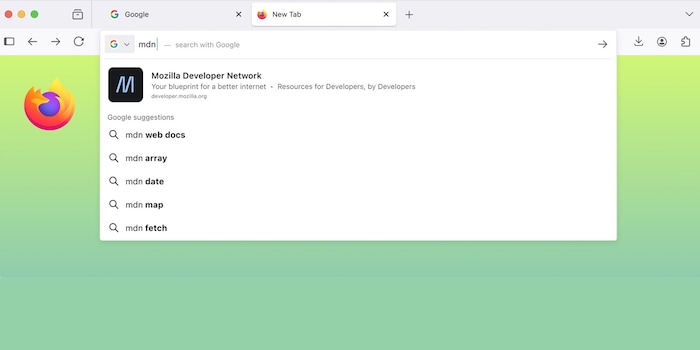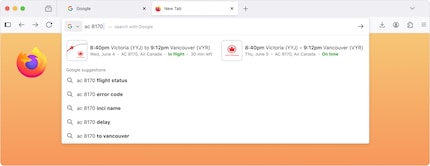
Mozilla tests anonymous search in Firefox
Firefox is testing a new way of searching: results appear directly in the address bar - faster and better protected thanks to OHTTP.
Mozilla is working on a new search function for Firefox that displays search results directly in the address bar. This allows users to see suggestions and answers as they type, without having to call up a search engine. The test run has begun in the USA and the feature will be rolled out gradually over the coming year.
What is this function supposed to do?
The new instant search is designed to make your searches faster and ensure greater data protection at the same time. It is based on the encryption protocol Oblivious HTTP (OHTTP). OHTTP separates the connection between the user and the search provider.
In concrete terms: A relay server transmits your query to the search provider, but does not know the content of the search query as it is encrypted. The search provider, on the other hand, sees the search text but does not receive any information about the sender - such as your IP address. In this way, Mozilla wants to ensure that neither the search provider nor the server know the content of your search query and your identity at the same time. This solution does not disclose any data - neither for advertising purposes nor for anything else.

Source: Mozilla
The encrypted instant search is part of a broader attempt to establish privacy-friendly alternatives to data octopuses and existing protection mechanisms.
Search results in a different design
In addition to encryption, Firefox is also testing a new «result design». In future, you will see direct hits in the bar itself when you enter the address bar - such as websites, places and the like. The test run in the USA should show how this new design is received by users. According to Mozilla, however, it will only be introduced outside the USA once the feature meets Mozilla's own requirements. When the time comes, it can be activated via «about:config». To do this, set the value at «browser.urlbar.quicksuggest.online.enabled» to «true».
I've been tinkering with digital networks ever since I found out how to activate both telephone channels on the ISDN card for greater bandwidth. As for the analogue variety, I've been doing that since I learned to talk. Though Winterthur is my adoptive home city, my heart still bleeds red and blue.
From the latest iPhone to the return of 80s fashion. The editorial team will help you make sense of it all.
Show all